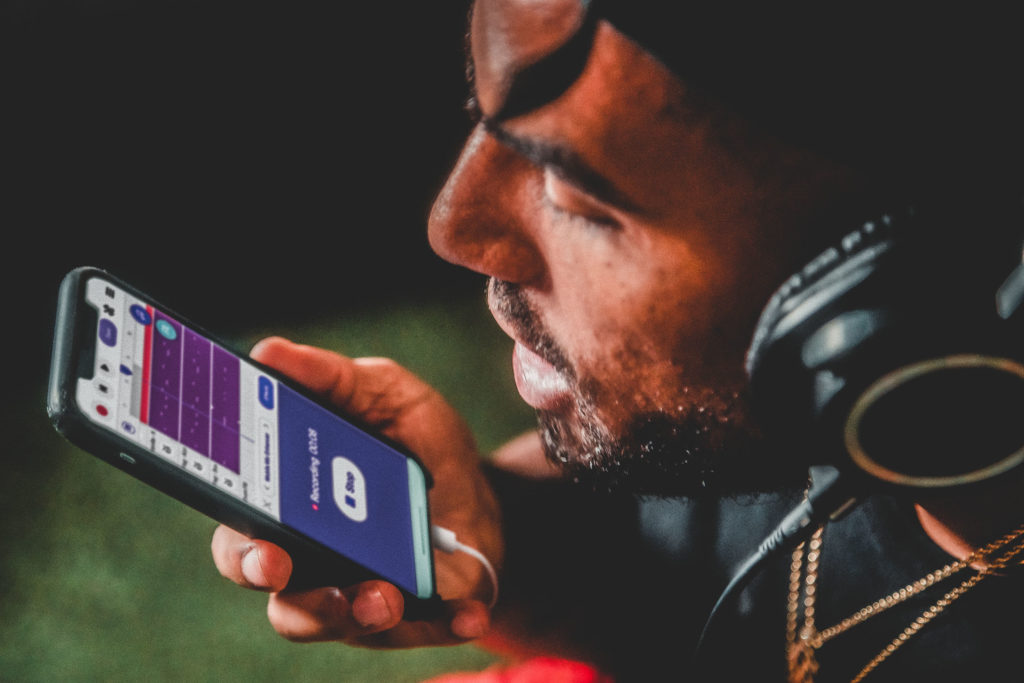A songwriter is a musician who composes musical compositions. This includes writing lyrics, melodies, hooks, and instrumental parts that make up a song.
The origins of songwriting stretch back thousands of years. Music has long served as a means of storytelling, expression, and bringing people together. From ancient lyricists and troubadours to classical greats like Mozart and Beethoven, the tradition of songwriting has evolved over centuries.

What is a SongWriter: Table of Contents
The role of the songwriter has morphed in tandem with changes in technology and music consumption. Where songwriters were once viewed solely as composers or musicians, the rise of recorded music introduced new opportunities. Songwriters became instrumental in crafting songs tailored for recording artists and commercial release.
Today, a songwriter may focus solely on writing lyrics or specialize in certain elements like toplining melodies. Some songwriters work independently while others collaborate in teams to create the perfect song. The music industry relies heavily on skilled songwriters to supply new material.
In the modern era, songwriters must not only be musically creative but also understand the business side of music. Protecting their rights, working with publishers, and adapting to industry disruption has become essential. At its core though, the art of songwriting remains focused on connecting with listeners through catchy melodies and resonating lyrics.
Songwriters occupy a unique space – utilizing musical talent to produce works that impact culture. Though formats and business models may change, the drive to turn inspiration into compelling compositions remains a constant. Songwriters give voice to the diverse spectrum of human experience.

Types of Songwriters
The creation of a song involves various moving parts. While some songwriters work independently, it has become common for different specialists to collaborate – each bringing their own skills to the table.
Songwriting is rarely a solo process. Though styles and approaches may differ, combining these diverse talents allows songs to become fully realized works of art. The magic is in the collaboration.
Understanding the different types of songwriters and their respective roles provides insight into the songwriting process.
Composers
The heartbeat of a song comes from its instrumental melody and arrangement. Composers are the songwriters who craft these musical foundations.
Drawing on music theory and instrumental proficiency, composers design the chords, scales, and harmonies that form a song’s backbone. They blend various instruments like piano, guitar, strings, and percussion to create compelling rhythms, textures, and melodic motifs.
Composers bring musical ideas to life by translating emotion into sound. Their unique sensibilities allow them to write across diverse genres – from orchestral works to jazz standards to pop hits. Iconic composers like Mozart, Beethoven, and Bach produced classical masterpieces that have endured for centuries. In pop music, composers like Max Martin, Shellback, and Benny Blanco have defined the sound of mainstream hits.
While some composers focus on instrumentation, others may also write the topline vocal melody. Either way, their ability to craft memorable melodic hooks and riffs makes composers integral to the songwriting process. They lay the groundwork that allows the other elements of a song to shine.
There is an art to writing music that connects on a primal, emotional level. Whether eliciting tears or joy, composers have incredible power through their melodies. They can accentuate lyrics, set a mood, or get listeners up dancing. Great composers bring hearing and feeling into harmony. Their unique expertise makes them invaluable contributors when creating compelling songs.
Topliners
The advent of the topliner has dramatically impacted today’s pop music landscape. By adding infectious melodies and hooks to pre-made beats, topliners have influenced the sound and songwriting process of mainstream genres.
Topliners provide the secret sauce that can turn an instrumental track into a hit. Their strong melodic sensibility and lyrical flair gives music mass appeal. In many cases, producers send beats out to multiple topliners, selecting the best melodies to make the song complete.
This production-led approach has come to define genres like pop, hip-hop, and EDM. The rise of toplining has shifted the balance of power from the traditional songwriter to the producer. The perfect melody over a hot beat has become a formula for dominating the charts.
For amateur songwriters, toplining also provides new opportunities. Those lacking advanced musical skills can still have their melodic or lyrical idea brought to life by pairing it with a producer’s beat. Topliners have created more accessibility and diversity in mainstream songwriting.
By matching compelling beats with infectious melodic ideas, topliners have tapped into a successful method for creating widely resonating music. Their unique flair and accessibility has reshaped the musical landscape. Topliners continue to provide the missing puzzle piece that elevates instrumentals into hit songs.
Beatmakers
The rhythmic heartbeat of any great song starts with a compelling beat. Beatmakers are the songwriters who construct these rhythmic foundations using drums, basslines, and percussion.
Employing drum machines, samplers, synthesizers, and more, beatmakers build the instrumentals that propel a song forward. They craft the grooves, patterns, and vibes that make music feel alive and get listeners moving.
Beatmakers provide the backbone that gives a song its style, feel, and identity. Iconic producers like Dr. Dre, Timbaland, Max Martin, and Pharrell Williams have created genre-defining beats across hip hop, pop, R&B, and EDM. Their beats become just as signature to a song as the melody or lyrics.
While a beatmaker initially provides the instrumental canvas, their work is far from done once the initial track is laid down. They collaborate with lyricists, topliners, and instrumentalists – providing feedback and additional layers of sound to enhance the song.
Great beatmakers have a preternatural sense of rhythm and texture. Their beats evoke emotion while making listeners want to dance. They can turn disparate sounds into audio alchemy. Beatmakers are the wizards behind the rhythmic curtain – making music feel alive.
Lyricists
Lyrics often separate good songs from great ones. Lyricists are the poetry behind the music – using words to convey compelling stories, emotions, and messages.
Employing literary techniques like rhyme, imagery, and metaphor, lyricists transform mundane words into impactful verses and choruses. Their lyrics give voice to the human experience in a way that resonates deeply.
Iconic lyricists like Bob Dylan, Paul Simon, and Leonard Cohen have penned thought-provoking lyrics across genres. Stevie Nicks, Paul McCartney, and Ellie Goulding showcase the artistry possible in pop lyricism.
While some lyricists work independently, many collaborate closely with composers. The lyricist crafts words over original melody sketches or pre-existing musical beds. Working in tandem, the lyricist and composer refine the song into a poignant finished product.
Truly great lyricists have a gift with language and evoking emotion. Their lyrics elevate a song, providing deeper meaning. A forgettable melody can be redeemed by virtuoso lyrics just as generic lyrics can undermine an otherwise great song. The lyricist’s importance cannot be overstated.
In many ways, lyricists give a literal voice to the music. They articulate intimate thoughts in a way that fosters human connection. Lyricists help make it possible for listeners to find a song that feels like it was written just for them.

The Songwriting Process
Songwriting blends creative passion with technical skills. There are many elements that come together to craft a compelling song. Understanding the stages of the process provides insight into this unique artform.
Finding Inspiration
Before the first note is played or word is written, a spark of inspiration ignites the songwriting process. Songwriters derive creative fuel from a multitude of sources.
Personal experiences provide timeless inspiration, from falling in love to overcoming heartbreak. Translating life stories into song helps listeners connect through shared emotions. Cathartic songs can also be drawn from painful memories as therapy.
The imagination serves as another wellspring. Fiction, poetry, films, and art can spur flights of lyrical fancy. People-watching and observing life provides scenarios and perspectives to explore.
Some songwriters find muses in activism or social causes, creating message-driven anthems that give voice to struggles. Spiritual pursuits also lead to inspiration for uplifting or devotional works.
Experimentation and play reignite stagnant creative juices. Changing surroundings, collaborators, or instruments gets mental gears turning again. Limitations imposed during improvisation force resourcefulness.
Inspiration manifests differently for each songwriter but always marks the starting point. Capturing those initial creative sparks before they fade is essential for crafting impactful music. Inspiration provides the raw materials to then be refined through songwriting craft.
Writing Lyrics
Once inspiration strikes, songwriters harness the power of language to bring their ideas to life. Writing impactful lyrics is a craft that employs specific literary tools and techniques.
Devices like rhyme, meter, and repetition create lyrical momentum that gets stuck in the listener’s head. Imagery and metaphor paint vivid verbal pictures. Sensory details provide nuance and accessibility.
Song structure provides further framework for expression. Writers carefully sculpt verses to tell stories, chimy choruses that summarize key themes, and bridges to create contrast.
Equally important as writing lyrics is the refinement process. Songwriters edit and rework words to maximize clarity and potency. Syllable counts are measured, problem phrases retooled. It takes drafting, evaluation, and often many rewrites to achieve lyrical resonance.
In many ways, lyrics give literal voice to the song and the songwriter. Their words articulate intimate thoughts in a way that fosters human connection. Masterful lyrics elevate a song beyond the sum of its notes.
Composing Melodies
After lyrics lay the textual groundwork, composers bring the music to life by crafting evocative melodies. This requires understanding music theory and instrumentation.
Knowledge of chords, scales, and harmony allows songwriters to construct the accompaniment parts and chord progressions that support a song’s framework. Lush background instrumentation like strings or piano create interesting textures.
The melody sits atop this musical bed. Songwriters carefully design melodic hooks, riffs, and motifs that capture the essence of a song. These infectious melodies replay in listener’s minds long after the song ends.
Structuring the melodic elements creates cohesion. Deciding when to introduce the chorus melody or key change maximizes dramatic impact. Moderating rhythmic variance provides balance. Songs live and breathe through their melodies.
Masterful composers understand how to translate lyrics and inspiration into resonant melodies. Finding a melody that perfectly complements the words elevates a song immensely. Their melodies elicit visceral human emotions beyond what lyrics alone can achieve.
Collaborating
While songwriting can be a solo endeavor, collaboration is also integral to the process. Co-writing allows songwriters to build on each other’s ideas and strengths.
Partnerships between lyricists and composers are common collaborations. The composer provides musical ideas for the lyricist to enhance with words, or vice versa. Their skills complement each other.
Producers also play a key collaborative role. They provide feedback to refine arrangements, oversee recording, and help translate ideas into a polished final product. Navigating this relationship is important.
Collaboration requires open communication, compromise, and constructive criticism. Egos must be set aside in service of the song itself. Healthy debate fuels improvement but personal conflicts derail progress.
When done skillfully, co-writing synthesizes disparate flavors into a unique sonic stew. It provides strengths one writer alone lacks. Collaborative synergy takes songs to new creative heights. The combined expertise makes the whole exceed the sum of its parts.
Using Instruments and Software
From guitar strums to drum beats, instruments and software bring the tangible musical elements of a song to life. They provide the colors for songwriters to paint their melodic masterpieces.
Acoustic guitars and pianos allow writers to channel melodies and accompaniment. Full band demos flesh out ideas with bass, percussion, and more. Having command of instruments – even simply for sketching – streamlines workflow.
DAWs like Logic, Pro Tools, and Ableton capture song ideas through recording, editing, and arrangement. Virtual instruments and effects plugins provide limitless sonic options. Accessible home studios empower creation.
Production tools shape the listening experience. Equalization and compression refine timbres. Reverb and delay create space and depth. The right soundscape makes music resonate emotionally.
Instruments unlock self-expression. Software enhances creativity. Together they empower songwriters to translate vision into sound. Technology removes barriers, allowing any idea to become reality with the right tools and skills.

Becoming a Songwriter
Songwriting fuses artistic passion with learned skills. Aspiring songwriters have many educational paths to attain the knowledge needed for success. Training focused on creativity, business, and persistence prepares writers for the road ahead.
Education and Training
While raw talent provides a starting foundation, proper songwriting education and training cultivates skills to new heights. There are diverse educational paths aspiring songwriters can take.
Music and songwriting-focused university degrees provide comprehensive training. Students take courses in music theory, history, composition, lyric writing, production, and the music business. Hands-on classes and access to studios facilitate practical growth.
Certificates through colleges offer shorter songwriting programs. Typically taken online, these programs supply core knowledge and may include instructor feedback on compositions. Certificates provide flexible training options.
Private coaching offers personalized guidance. Working one-on-one with an experienced songwriting mentor addresses specific skills that need refinement. Coaching provides focused feedback based on a writer’s needs.
Whatever the path, proper education arms songwriters with knowledge to complement their natural abilities. Training fosters competency in areas like theory, musicianship, and lyric writing that make crafting impactful songs possible. A combination of schooling and coaching builds essential creative faculties.
Essential Skills
Beyond formal education, developing essential songwriting skills is crucial for success. Core abilities related to musicality, creativity, and business provide a multifaceted toolkit.
Musical proficiency in areas like vocal ability, chordal accompaniment, music theory, and production are vital. Even basic instrumental skills allow songwriters to capture ideas. Technical prowess expands creative possibilities.
Creativity and imagination fuel the songwriting fire. Writers need a gift for language and melodic ideas. Active listening and studying hit songs stimulates inventiveness. Pursuing creative hobbies flexes originality.
Understanding business and legal facets provides an edge. Knowledge about publishing, copyrights, splits sheets, and royalties maximizes profitability. Learning pitching, networking, and marketing introduces professional opportunities.
Great songwriters blend art and commerce. They tap into inventive muses while understanding commercial viability. Developing 360-degree expertise in music, lyrics, production, and business makes it possible to sustain a career. Songwriting requires wearing many hats.
Building a Portfolio
As skills progress, developing a strong portfolio of songs becomes pivotal for aspiring songwriters. A diverse catalog of original compositions in various genres demonstrates capabilities.
Creating polished demos brings ideas to life. Even simple arrangements recorded on a phone work. Investing in professional home studio equipment and collaborators pays dividends in portfolio quality.
Leveraging online platforms like SoundBetter, Taxi, and Songspace connects writers to potential clients. These sites facilitate pitching songs and finding co-writers. An online presence lends legitimacy.
Cultivating a social media presence provides additional exposure. Sharing lyrics, audio clips, and behind-the-scenes content engages followers. The more ears that hear your music, the better.
A compelling portfolio communicates a songwriter’s abilities better than any resume. The songs themselves prove skill. Portfolios provide the exposure and connections needed to grow an audience and monetize one’s talents.
Networking
Beyond technical skills, networking and relationship building are cornerstones for songwriting success. From major artists to local collaborators, connections unlock opportunities.
Forging bonds with artists provides talent to pitch songs to. Getting music to well-known acts often starts with grassroots mutual support. Offering services pro bono can prove capabilities.
Attending industry events puts writers face-to-face with influential figures. Conferences, workshops, and song camps facilitate meeting publishers, A&R reps, supervisors, and other collaborators. In-person networking breeds organic relationships.
Online communities remove geographic barriers. Groups like Taxi, BMI MusicWorld, and Reddit Songwriting foster peer support and allow virtual collaboration. Online networking casts a wide net.
From co-writers to producers to the artists themselves, relationships drive songwriting careers. You never know which encounter might lead to a career-making connection. Persistence and constantly expanding one’s circle maximizes prospects.
The Business Side of Songwriting
While passion drives the art, songwriting also necessitates business savvy. Understanding copyrights, publishers, income streams, and earnings potential allows writers to monetize their work and sustain a career.
Copyrights and Royalties
Songwriters rely on copyrights and royalties to receive fair value for their creative work. Understanding publishing rights safeguards song ownership.
A song is protected by copyright as soon as it is tangible – written down or recorded. Registering with PROs like ASCAP and BMI provides further protection by tracking public performances. Copyright mastery maximizes profitability.
Royalties compensate songwriters whenever their work gets used. Mechanical royalties come from sales and downloads, performance royalties from plays on radio/streaming, and sync royalties from media licensing. Royalties incentivize continued creativity.
Co-writers split royalties based on predetermined percentages outlined in split sheets. Copyright ownership and rights to use a song can be divided in various ways between contributors.
New distribution models disrupt traditional royalty structures but PROs adapt royalty rates accordingly. Savvy songwriters review their statements for accuracy. Leaving potential earnings unclaimed hurts creators.
Understanding publishing and copyrights allows songwriters to fully capitalize on their intellectual property. Protecting creative work provides career stability and maximizes income.
Working with Publishers
Music publishers provide invaluable guidance and connections for songwriters seeking professional opportunities. Aligning with a publisher can elevate careers but finding the right fit is key.
Publishers pitch songs to artists, labels, supervisors, or other outlets best suited for the material. Their industry access facilitates opportunities songwriters may not secure alone.
They handle licensing negotiations for placements in film, TV ads, and other media. Sync licensing deals earn writers lucrative upfront sync fees. Publishers maximize these revenue channels.
The best publishers nurture their writers. They don’t just collect royalties but actively mentor and foster artistic growth. Publishers who invest in long-term songwriter relationships achieve mutual success.
Not all publishers operate ethically however. Questionable deals favoring publishers still occur. Inexperienced songwriters should educate themselves on industry standards before signing any contracts. A trustworthy publisher-writer bond bolsters careers.
Income Streams
Songwriters monetize their work through diverse income channels. Understanding the various royalty sources empowers writers to maximize their earnings potential.
Sales and downloads of recorded songs generate mechanical royalties paid out at a fixed per-unit rate. Higher sales volumes earn writers more mechanicals.
Streaming platforms like Spotify and Apple Music also pay mechanical royalties, calculated using complex formulas based on a share of streaming revenue. These payouts are increasing as streaming grows.
Radio play and other public performances accrue performance royalties administered by PROs like ASCAP and BMI. More spins equal more performance royalties.
Sync licensing earns upfront sync fees for uses of songs in ads, film, TV, and games. Sync licenses can be lucrative, especially for recognizable hits.
Rather than relying on any one income stream, savvy songwriters diversify. Spreading compositions across sales, streaming, sync licensing, and performance royalties provides a safety net when any one channel underperforms.
The Business Side of Songwriting
While passion drives the art, songwriting also necessitates business savvy. Understanding copyrights, publishers, income streams, and earnings potential allows writers to monetize their work and sustain a career.
Copyrights and Royalties
Songwriters rely on copyrights and royalties to receive fair value for their creative work. Understanding publishing rights safeguards song ownership.
A song is protected by copyright as soon as it is tangible – written down or recorded. Registering with PROs like ASCAP and BMI provides further protection by tracking public performances. Copyright mastery maximizes profitability.
Royalties compensate songwriters whenever their work gets used. Mechanical royalties come from sales and downloads, performance royalties from plays on radio/streaming, and sync royalties from media licensing. Royalties incentivize continued creativity.
Co-writers split royalties based on predetermined percentages outlined in split sheets. Copyright ownership and rights to use a song can be divided in various ways between contributors.
New distribution models disrupt traditional royalty structures but PROs adapt royalty rates accordingly. Savvy songwriters review their statements for accuracy. Leaving potential earnings unclaimed hurts creators.
Understanding publishing and copyrights allows songwriters to fully capitalize on their intellectual property. Protecting creative work provides career stability and maximizes income.
Working with Publishers
Music publishers provide invaluable guidance and connections for songwriters seeking professional opportunities. Aligning with a publisher can elevate careers but finding the right fit is key.
Publishers pitch songs to artists, labels, supervisors, or other outlets best suited for the material. Their industry access facilitates opportunities songwriters may not secure alone.
They handle licensing negotiations for placements in film, TV ads, and other media. Sync licensing deals earn writers lucrative upfront sync fees. Publishers maximize these revenue channels.
The best publishers nurture their writers. They don’t just collect royalties but actively mentor and foster artistic growth. Publishers who invest in long-term songwriter relationships achieve mutual success.
Not all publishers operate ethically however. Questionable deals favoring publishers still occur. Inexperienced songwriters should educate themselves on industry standards before signing any contracts. A trustworthy publisher-writer bond bolsters careers.
Income Streams
Songwriters monetize their work through diverse income channels. Understanding the various royalty sources empowers writers to maximize their earnings potential.
Sales and downloads of recorded songs generate mechanical royalties paid out at a fixed per-unit rate. Higher sales volumes earn writers more mechanicals.
Streaming platforms like Spotify and Apple Music also pay mechanical royalties, calculated using complex formulas based on a share of streaming revenue. These payouts are increasing as streaming grows.
Radio play and other public performances accrue performance royalties administered by PROs like ASCAP and BMI. More spins equal more performance royalties.
Sync licensing earns upfront sync fees for uses of songs in ads, film, TV, and games. Sync licenses can be lucrative, especially for recognizable hits.
Rather than relying on any one income stream, savvy songwriters diversify. Spreading compositions across sales, streaming, sync licensing, and performance royalties provides a safety net when any one channel underperforms.
Earnings and Average Salary
The potential earning power of hit songs fosters lofty hopes, but the reality of songwriter incomes is often more modest. Understanding revenue models and variables provides realistic expectations.
Songwriter incomes fluctuate based on royalty rates and song popularity. Hits earn far more than album tracks or unsigned compositions. Reliable earnings data is scarce given the opaque nature of songwriting deals.
Revenue Share Models: In the music industry, the pie isn’t divided equally. Revenue sharing often depends on contracts, partnerships, and the platforms where songs are distributed. Some common models include:
- Royalty Splits: Often, songwriters receive a percentage of the royalties generated from sales, streaming, or licensing. These percentages can vary based on negotiations and industry standards.
- Advance Against Royalties: Some music publishers or record labels might offer an upfront payment to songwriters. This ‘advance’ is then recouped from future royalties.
- Performance Royalties: When songs are played on radio, live venues, or TV, songwriters earn performance royalties, usually collected by Performance Rights Organizations..
Income variability is commonplace. Levels depend on factors like radio play, sales volumes, and licensing opportunities. Income surges when a song succeeds but fallows during dry spells are probable.
The top echelon of songwriters earn millions per hit, but many professionals make modest incomes comparable to average salaries in other fields. Building long careers on small successes is more common than scoring huge hits.
While the potential for high incomes exists, songwriters must balance pragmatism with optimism. Focusing on the craft, valuing small wins, and avoiding comparisons foster fulfillment. Passion trumps fortune.
Songwriting & Technology
From creation to collaboration to distribution, modern innovations empower songwriters. Digital tools increase productivity, expand creative possibilities, and provide direct fan access.
Digital Collaboration
Technology removes geographic limitations by enabling remote songwriting collaboration through file sharing and tools facilitating virtual co-writing sessions.
File sharing allows songwriters to trade ideas back and forth seamlessly. Dropbox and WeTransfer allow sharing works-in-progress to gather feedback from co-writers. Partners can refine songs asynchronously by building on each other’s additions.
Dedicated online platforms like Splice, BandLab, and SoundTrap take remote collaboration further by integrating communication, cloud recording/production tools, and version control into one interface. Partners can write songs together in real-time from anywhere.
Virtual songwriting also sparks new connections. Networking sites like Taxi remove location barriers when finding co-writers. Songwriters can select partners based purely on artistic synergy rather than proximity.
While lack of in-person chemistry can challenge remote collaborations, the expanded possibilities often outweigh drawbacks. Virtual writing fosters global partnerships, fueling exponential creativity.
Distribution Platforms
Digital platforms allow songwriters to directly distribute their work to fans without traditional label gatekeepers. Streaming services, social media, and direct fan connections form a distribution ecosystem.
Streaming services like Spotify and Apple Music provide instant, global distribution. Songs reach millions of listeners immediately. Playlist placements beget more discovery. Data informs songwriting decisions.
Social media fosters artist-fan connections. Sharing previews, behind-the-scenes content, and lyric snippets provides a glimpse into a songwriter’s creative process. These insights build loyal followers.
Direct fan outreach via email lists, personalized DMs, and artist-run stores/platforms allows targeted release strategies. Fans feel prioritized getting access to limited editions and exclusives.
This distribution independence enables deeper fan engagement but demands greater self-promotion. By leveraging diverse digital channels, songwriters control their creative destinies and skip traditional filters. The future remains direct.
Production Tools
Innovations in home studio gear, creative software, and instrument sample libraries provide infinite sonic possibilities for crafting professional productions on any budget.
Affordable home studio equipment like USB mics, audio interfaces, and MIDI controllers enables pro-sounding song demos. Comprehensive DAWs remove technological limitations.
Creative software tools – from notation apps like Noteflight to lyric writing tools like MasterWriter – optimize idea capture and refinement. Songwriting plugins provide inspiration.
Vast libraries of virtual instrument samples model high-end guitars, drums, orchestras, and more, providing limitless arrangement options. Synthesizers expand sonic creativity.
Democratized access removes excuse. By leveraging the astonishing production capabilities available today, songwriters craft complete artistic visions. Technology untethers creativity from constraints.
Frequently Asked Questions
Songwriting elicits common questions from aspiring writers. Understanding the challenges, options, and approaches provides clarity on the path ahead.
Is it hard to be a songwriter?
Becoming a successful songwriter is no walk in the park. The music industry, brimming with talent, presents a competitive landscape. While having a spark of creativity is essential, it takes more than just talent to shine.
Networking with industry professionals, understanding the pulse of the audience, and continuously refining one’s craft are crucial. Moreover, staying abreast of evolving music trends and being receptive to feedback can make the difference between a good songwriter and a great one.
Can anyone become a songwriter?
Absolutely! The world of songwriting isn’t an exclusive club. While innate talent can give you a head start, passion, dedication, and the will to learn are the real game-changers. Whether you’re 15 or 50, if melodies dance in your head and you have stories to tell, songwriting can be your canvas.
How to write a song with no experience?
Start with your emotions, experiences, or observations. Jot down your thoughts, play with words, and experiment with melodies. While understanding musical structures can help, don’t let the lack of formal knowledge deter you. Over time, practice, learning, and feedback will be your best teachers.
What is the hardest part of writing a song?
It varies. For some, finding the right words to express an emotion can be daunting, while others might grapple with creating a catchy melody. Consistency is another challenge; ensuring every song you write resonates with listeners can be demanding.
Is songwriting a talent or skill?
It’s a harmonious blend. While some are born with a knack for melodies or an innate ability to weave words magically, the technical aspects, like mastering music theory or understanding song structures, can be learned.
What is the hardest genre to write music?
Each genre has its complexities. Be it the narrative depth of country, the rhythmical nuances of jazz, or the production intricacies of EDM, the challenge often lies in authentically capturing the essence of the genre while staying original.
Do songwriters have to sing?
Not necessarily. While many songwriters do lend their voices to demos, singing isn’t a prerequisite. The primary role of a songwriter is to craft the song; delivering it vocally can be left to the artists.
Are there rules for songwriting?
While there are guidelines, like song structures or rhyme schemes, songwriting thrives on creativity. Some of the most iconic songs have broken traditional molds.
How do you know if you are a good songwriter?
Feedback is a mirror. Listening to audiences, peers, and mentors can provide insights. However, growth is a journey. Celebrate your progress, embrace critiques, and strive to evolve with each song.
Can I write a song every day?
Why not? Setting a routine can sharpen your skills. While every song might not be a masterpiece, the discipline will undoubtedly refine your craft.
Is 30 too old to be a songwriter?
Music knows no age. Many renowned songwriters have penned hits well into their 50s and 60s. If you have a story to tell, it’s never too late.
How do songwriters get paid?
Royalties are the primary income. Every time a song is purchased, streamed, or played on the radio, songwriters earn. Licensing deals, live performances, and collaborations can also contribute to their earnings.
What percentage does a songwriter take?
This varies based on contracts, collaborations, and platforms. Negotiations, industry standards, and the nature of the project can influence the share a songwriter receives.
How is a songwriter different from a composer or lyricist?
A songwriter typically crafts both the melody and lyrics. In contrast, a composer focuses on the musical aspect, while a lyricist specializes in penning words.
What are the modern methods of learning songwriting?
The digital era offers a plethora of resources. From online courses, webinars, and workshops to songwriting retreats and mentorship programs, budding songwriters have a myriad of avenues to hone their craft.

